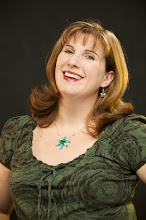I realize that yesterday's post may have been a wee bit confusing so I thought I'd provide an example - but first a tiny bit more explanation. Civil society, in the sense that I am using it, is a space in which members of a society can engage in free and constructive debate to determine what type of society they want to live in. Citizens (however that is defined) or more generally, members of the society ideally would all have equal access to this space. To me it seems obvious that anyone who is excluded from this discussion suffers a loss of standing in their level of citizenship - a hierarchy is created between those whose opinion is valuable and acceptable and those whose ideas are not.
On with the example. Back in 2006, there was a controversy about a book that had been well-researched and well-written and that dealt with an important topic. The book I am talking about is Three Wishes: Palestinian and Israeli Children Speak by Deborah Ellis. This book has been restricted in many school districts, including Toronto, because of a campaign by the Canadian Jewish Congress after the book made the Silver Birch award finalist list. This article by Mary-Lou Zeitoun provides a quick introduction to the situation from one side, here is an article from the Toronto Star posted by the CJC. The issue was whether this book was appropriate for children, and whether it should be made available through schools.
Another book which has been restricted, or banned outright, from various school boards is The Golden Compass by Philip Pullman as well as the other two books in his Dark Materials trilogy after a campaign by the American Catholic League and the release of the major motion picture in 2007 (although the books have been available since 1995). In this article from the CTV, the reason for the removal is explained - Pullman is an admitted atheist and his values do not fit with those of the Catholic School Board. The best part is that in Halton, the review board okayed to book for Grade 7 and up but the trustees voted to ban it entirely. After all, students can always go the "public" library to get the book. Interesting, where exactly does the Catholic School Board of Halton get its funding?
Okay, the point of this is not that books get banned, after all, we've been allowing library boards to do that for decades but that these bannings, I think, point very strongly towards the groups whose views are acceptable and whose views are not. Palestinians, nope, not acceptable. Atheists, nope, gotta go. And, above all else, children must be protected from reality, from the fact that there are terrible things that happen in the world and that there may be people who disagree with the ones educating them.
In order to have a truly open debate we need to hear from all points of view, be able to critically engage with those views, and come to new understandings about why and how we are to live our lives. I'm not sure how this is supposed to happen if we limit the participants of dialogue only to those people and groups with whom we agree and who support our point of view.
To me, that's pretty weak.
Monday, January 14, 2008
A Practical Example of Exclusion
Labels:
books,
children,
Civil Society,
Deborah Ellis,
education,
Philip Putnam
Subscribe to:
Post Comments (Atom)







No comments:
Post a Comment